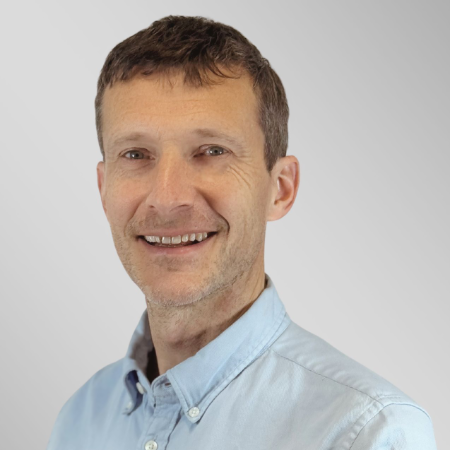Interview with Professor Reyn van Ewijk
- Tome Sandevski

- Jan 13
- 3 min read
Updated: Feb 21
Prof. Dr. Reyn van Ewijk is Professor of Statistics and Econometrics at Johannes Gutenberg University Mainz. He has a background in economics, psychology and epidemiology. In his research, he applies econometric statistical methods, in particular so-called natural experiments, to study human health. He uses
large databases such as biobanks and register data.
Professor von Ewijk, in the summer of 2021 you provided the German Academy of Pediatric and Adolescent Medicine / umbrella organization of pediatric and adolescent medical societies with information for a statement for the Federal Constitutional Court. How did the contact come about (e.g. prior collaboration or did the professional association google you)?
At that time, I was active in the COVID-19 Public Health Competence Network as a representative of the German Society for Health Economics. Within this network, I came into contact with a representative of the German Society for Social Pediatrics and Adolescent Medicine (DGSPJ). The pediatricians were interested in the economic impact of pandemic-related measures in schools. I provided input on this, and later the DGSPJ was asked by the German Academy of Pediatrics and Adolescent Medicine/ umbrella organization (DAKJ) to contribute to a statement for the Federal Constitutional Court on the ban on face-to-face teaching. I also provided some advice on this.
Did you have the necessary information at hand when you received the request or did you have to do more research yourself? (In other words: Was providing the information time-consuming? Background: Many researchers think that practice engagement is time-consuming. Was it data, literature references?)
At the time, I had already given a few lectures on the short and long-term consequences of school closures and was quite familiar with the existing scientific literature on this topic. I had also started my own research project together with some colleagues, in which we investigated how school openings in Germany after the 2021 summer vacation affected incidence rates. Therefore, I was deeply familiar with the topic and only had to spend a little extra time gathering more information and evidence.
At the end of 2021, you published an analysis on the containment effect of schools on the spread of Sars-Cov-2. What was the key message of your analysis?
We analyzed the impact of school openings on the spread of SARS-CoV-2 based on different summer vacation ends in German federal states. School openings initially led to a brief increase in infection numbers as asymptomatic cases were detected through testing. Subsequently, open schools under strict hygiene measures and mandatory testing led to decreasing infection rates. This shows that schools can contribute to pandemic control under certain conditions. School closures, on the other hand, can make the important monitoring of infection rates more difficult and should only be used as a last resort due to the serious consequences for children.
The topic of school closures during the Covid-19 pandemic has been the subject of much controversy in Germany. Were you worried that your study would push you into a political corner?
At that moment, it was clear from all the scientific literature - both before and during the pandemic - that school closures lead to significant learning losses, especially in Germany, where the digital infrastructure in schools was poor and made distance learning difficult. Such effects are particularly strong among socially weaker groups and reinforce social inequality. In addition, school closures have long-term negative consequences for health, income, attitudes towards society, etc. In Germany, we had a very effective system for testing and hygiene measures in schools. Against this background, it was more important to me to bring our results and the message they conveyed into the discussion than to worry about being pushed into a political corner.
Did the media pick up on their findings?
Our work was picked up and discussed by several newspapers, including Die Welt and Bild, as well as by radio stations and in online news.
Have you received any feedback from politicians?
We had no direct contact with politicians. Nevertheless, they have probably heard about our research in the media or in a policy report we have written. Politicians base their decisions and the content of their communication on many different influencing factors. They do not always mention these factors explicitly, and even if they do, we do not always find out about them. Therefore, we cannot know exactly if and how our research has influenced policy. However, one media report suggests that we have had at least some influence, as the Minister of Education of Bavaria explicitly referred to our work when he promised to do everything possible to keep schools open.
The questions were asked by Tome Sandevski. He heads the policy engagement unit at Goethe-University Frankfurt, where he coordinates the joint policy engagement projects of the Rhine-Main-Universities Goethe-University Frankfurt, Technical University Darmstadt and Johannes Gutenberg-University Mainz.


